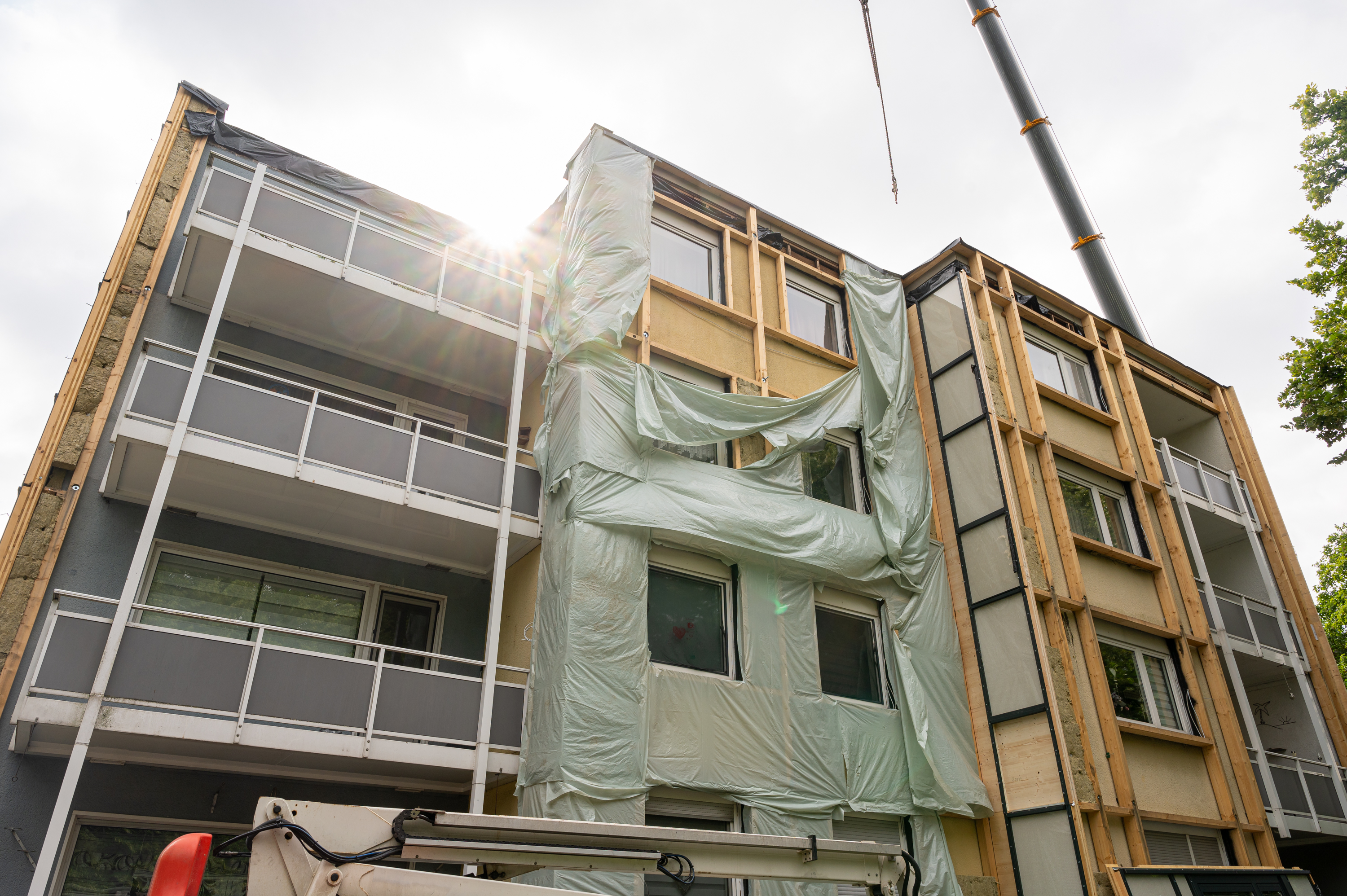Preview 2024: Building renovations key to meeting climate targets – think tank
This interview is part of a series to preview the German and European energy and climate policy in 2024. You can read our full 2024 preview article as well as further interviews here.
Clean Energy Wire: The German Constitutional Court’s debt brake ruling threatens many of the carefully crafted compromises the government achieved in climate and energy policy over the past year. Which of these compromises do you think must be preserved most urgently, and how?

Sibyl Steuwer (head of BPIE Berlin), Lisa Graaf (senior project manager): The climate transformation fund has a focus on financing energy renovations in the building sector – a priority area for action to decarbonise Germany’s economy. The redistribution of revenues from emissions trading to energy renovation is beneficial in several ways: it helps to decarbonise the building stock and increases health, comfort, and the value of buildings, as well as reducing energy costs.

Investments will only be made if there is a clear and stable policy framework that includes long-term targets and a support scheme. It is therefore key to preserve support for energy renovation of buildings. Specifically, despite the multiple benefits, there are many hurdles in the way of implementing deep renovation. To ensure high quality and access to funding, it is important to maintain the entire support package, including energy efficiency consultancy and building renovation passports.
Finally, it is important to provide continuous support for serial renovation. If climate targets are to be met, renovation practices must become less labour-intensive and faster in order to accelerate decarbonisation. Cutting support for innovation is cutting off the path to transformative practice.
The political year 2024 in Europe is dominated by the EU elections in June. Which climate and energy topics do you think should be made a priority before the election – and which ones will await the newly elected Parliament and Commission further down the road?
Irrespective of political changes, it must be ensured that the actors along the value chain know what to expect so that investments can actually be made. Implementing the new Energy Performance of Buildings Directive (EPBD) should be carried out to ensure exactly this: providing clarity about which parts of the building segment will need to be upgraded, about the long-term targets, and how to get there. One important element of the new directive is the introduction of life-cycle-thinking to the building sector. A lot of preparatory work has been carried out already in Germany. It is now time to take the next steps towards mandatory disclosure and limit values of life-cycle emissions. This will help realise savings from low-carbon design and materials and support the creation of markets for them.
Which other topics and events in Germany and beyond do you think will – or should – shape the debate next year in the field of climate adaptation, and why?
The next years will be key to ensure that any measure in the building sector is target-group specific and ensures that vulnerable and low-income households benefit most from available support. We need to respond to the housing crisis by maximising the use of the existing building stock. Mobilising un- and underoccupied space, allowing repurposing and reutilisation, as well as flexible use can all help to address the housing shortage in many cities and regions and provide high quality space for increased wellbeing for all.
Communication will be essential to convey the message about the “why” and “how” of the energy transition in the building sector. Connecting the dots to untap synergies between local heat planning and decarbonising the buildings, for example through the help of digital building logbooks, can support positive narratives. Renovation practices will have to change towards more standardised, better coordinated, and digitised processes to accelerate decarbonisation and productivity in the construction sector. Finally, we expect to see a more impactful EU Taxonomy since more companies will be covered from 2024 onwards.

